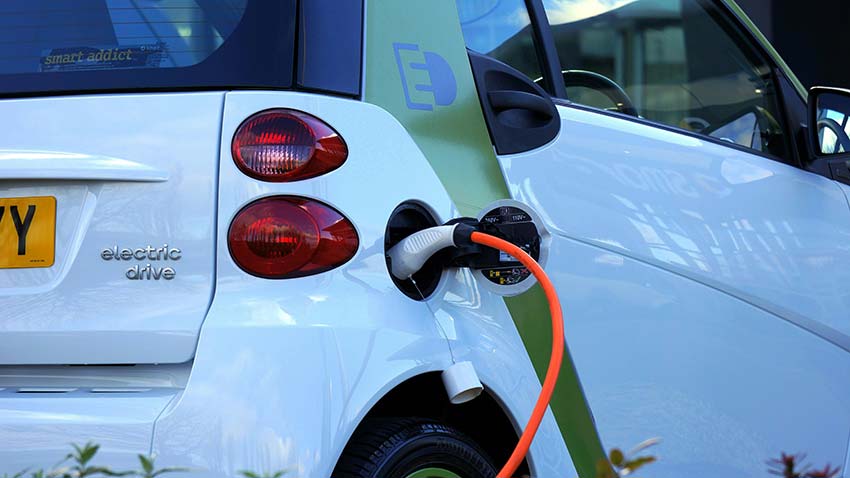
How Technical Education Fuels Tomorrow’s EV Workforce
Electric vehicles are reshaping the automotive industry, creating new career opportunities for skilled professionals.
Technical education provides the knowledge and hands-on experience needed to succeed in this evolving field, ensuring students are ready to meet the demands of tomorrow’s EV workforce.
Understanding EV Battery Systems and Maintenance
By completing a course like the automotive management and support technology associate’s degree at NYADI, you can learn things like the theory and operation of electric drive vehicle technology.
Among the skills you’ll need to succeed in the EV workforce is EV battery system maintenance.
Electric vehicles rely heavily on complex lithium-ion batteries. Technicians must understand how these systems store energy, deliver power, and operate efficiently under different conditions.
Courses typically cover inspecting for faults, managing charging cycles safely, replacing defective modules, and troubleshooting issues caused by thermal or voltage imbalances.
Practical experience helps students gain confidence working with high-cost components while maintaining safety standards.
Learning High-Voltage Safety Procedures
Electric vehicles operate using high-voltage systems, which pose unique risks. Understanding proper safety protocols is vital for anyone working on EVs. Mishandling these components can lead to severe injury or equipment damage.
Students in technical courses learn critical procedures such as safely deactivating power supplies before repairs, identifying live circuits, and using insulated tools designed for high-voltage work.
Safety training also involves recognising warning labels and understanding personal protective equipment requirements.
These measures ensure technicians remain protected while handling advanced electrical systems found in modern EVs.
Mastering Diagnostics for Electric Vehicle Issues
Identifying and resolving problems in EVs requires a solid understanding of diagnostic tools. Modern electric vehicles rely on intricate computer systems, sensors, and controllers that monitor performance.
Technical education equips students to use diagnostic software for pinpointing issues within battery packs, electric motors, or control units.
Training includes interpreting error codes, analysing data from onboard diagnostics (OBD), and conducting performance tests on electrical components.
These skills help technicians address faults quickly and accurately while reducing downtime—an essential capability in the fast-paced EV industry.
Programming and Calibrating EV Software Systems
Electric vehicles rely on sophisticated software to control performance, safety features, and energy efficiency. Learning to program and calibrate these systems is crucial for anyone entering the EV workforce.
Students gain hands-on experience working with electronic control units (ECUs) that manage functions like motor performance, regenerative braking, and battery management systems.
Training often includes updating firmware, customising settings for optimal operation, and troubleshooting software glitches.
Understanding this technical layer ensures technicians can adapt vehicles to specific requirements or resolve issues affecting functionality seamlessly.
Familiarising with Charging Infrastructure Technologies
Charging infrastructure is a cornerstone of electric vehicle operations. Technicians must understand the various charging methods, station types, and power requirements to support EV users effectively.
Technical education covers AC and DC charging systems, compatibility standards like CCS or CHAdeMO, and how these systems integrate with vehicles.
Students should also learn about smart chargers that optimise energy usage through software-controlled interfaces.
By mastering these technologies, technicians can diagnose charger-related issues, install home or public stations properly, and ensure reliable performance for EV owners everywhere.
Developing Skills in Thermal Management Systems for EVs
Electric vehicles generate heat in critical areas like batteries, motors, and power electronics. Effective thermal management ensures these components operate efficiently and last longer.
Technical courses teach students about cooling systems that regulate temperature, such as liquid-cooling loops or heat pumps. They also explore the impact of poor thermal control on performance and safety.
Practical training includes diagnosing overheating issues, maintaining system seals, and testing coolant flow rates.
With these skills, technicians can prevent damage caused by excess heat while optimising vehicle reliability.
Analysing Data from Advanced Driver-Assistance Systems (ADAS)
Many electric vehicles include advanced driver-assistance systems, such as adaptive cruise control and lane-keeping assistance. Understanding how to interpret ADAS data is an essential skill for technicians in this field.
Students learn to work with sensors like LiDAR, radar, and cameras that gather critical driving information. Training involves analysing system diagnostics, ensuring proper calibration of sensors, and addressing faults affecting autonomous features.
These skills help ensure that EVs equipped with ADAS operate safely and efficiently while meeting industry standards for modern vehicle technology.
Training in Electric Motor and Drivetrain Mechanics
Electric motors and drivetrains replace traditional combustion engines in EVs. Technicians need to understand how these systems work to maintain and repair them effectively.
Courses cover the operation of electric motors, including synchronous and asynchronous types, as well as the components within an EV drivetrain, like gear reduction units and differential systems.
Students should learn about diagnosing performance issues, replacing worn parts, and ensuring seamless energy transfer from motor to wheels.
This knowledge equips technicians to handle one of the core elements powering modern electric vehicles.
Learning Vehicle-to-Grid (V2G) Communication Technologies
Vehicle-to-grid (V2G) technology enables electric vehicles to send stored energy back into the grid, creating a dynamic energy exchange. Understanding this innovation is becoming increasingly important as it gains adoption.
In technical courses, students learn how V2G systems operate, including bidirectional charging capabilities and communication protocols between vehicles and power grids.
Training includes configuring software settings for compatibility and diagnosing connection issues.
With expertise in V2G technologies, technicians can support sustainable energy practices while enhancing EV functionality for both consumers and communities.
The Takeaway
The transition to electric vehicles opens doors for innovative careers.
With the right technical education, aspiring professionals can thrive in this rapidly growing industry and have they can ask companies to write my paper for me cheap.
By gaining expertise now, you’ll be equipped to contribute to a sustainable future and meet the needs of modern transportation.